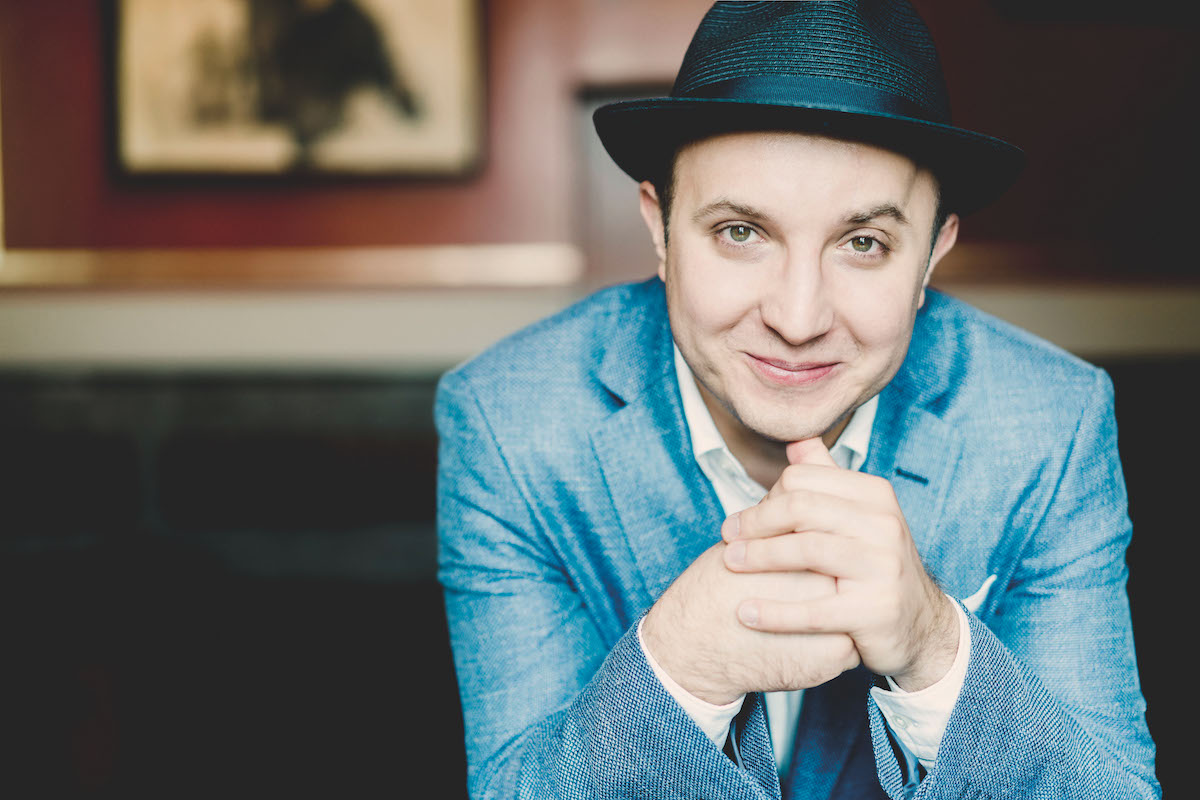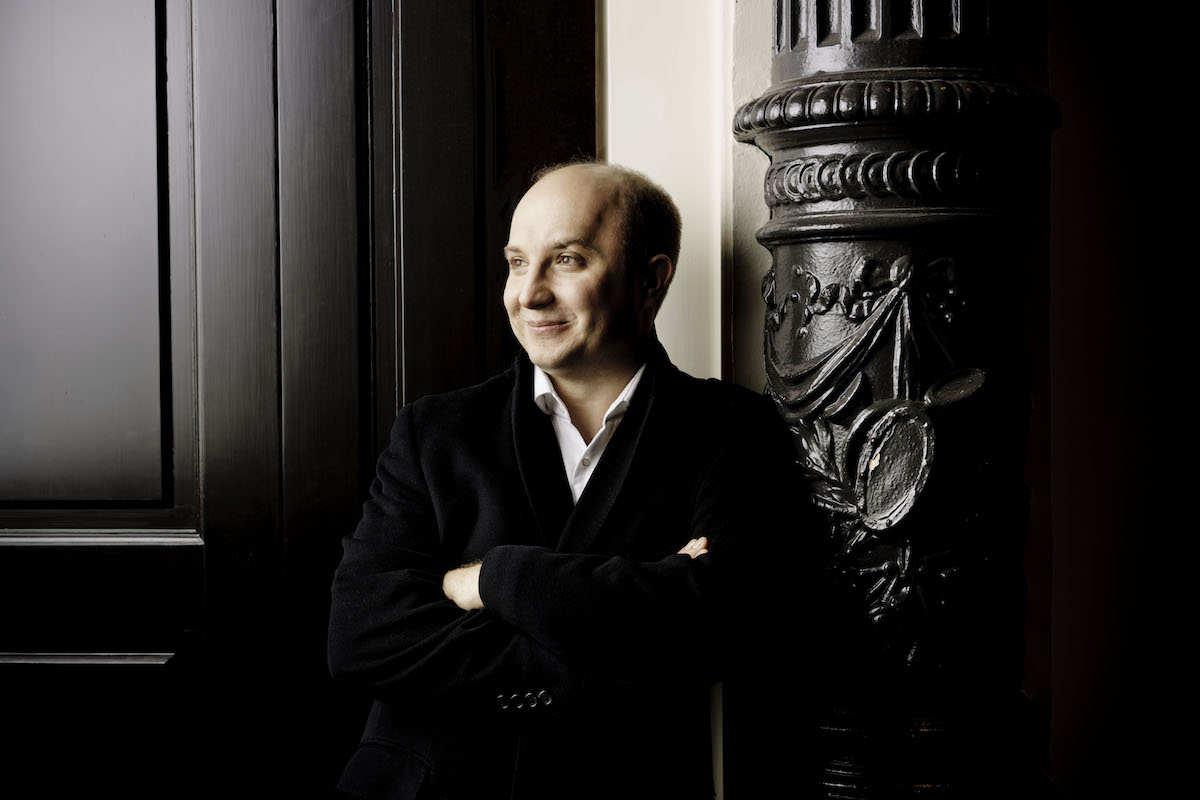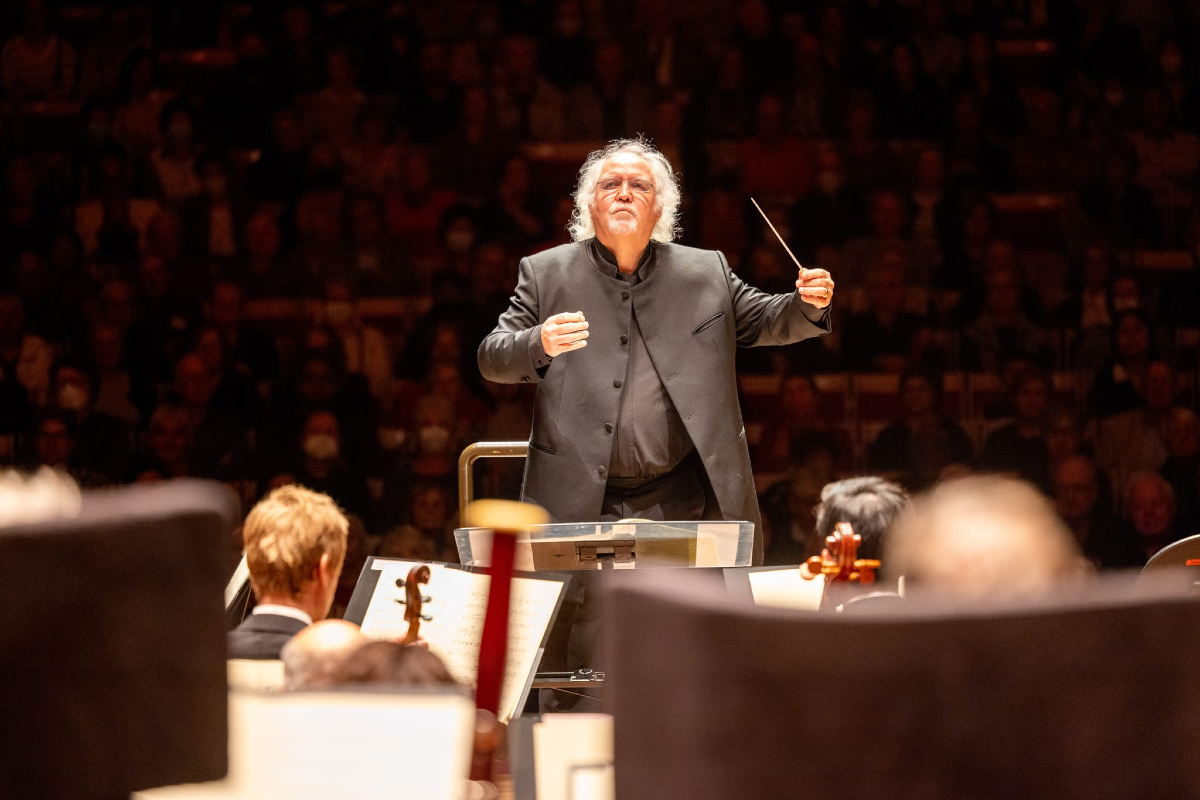Tchaikovsky’s First Piano Concerto is unquestionably one of the great Romantic piano concertos. The opening blast of the horns, then that memorable theme played first by the strings then picked up by the soloist – and that’s just the first minute!
Little wonder that it was a huge popular success at its premiere in 1875, and that it has remained a favourite of audiences worldwide for 150 years.
In November, Sydney audiences will renew their love-affair with this sumptuous feast, when Alexander Gavrylyuk stars as soloist with the Sydney Symphony Orchestra, conducted by Principal Guest Conductor Sir Donald Runnicles.
The Tchaikovsky is coupled with Debussy’s Images for orchestra and their beautifully rendered Impressionist visions of England, Spain and France at the dawn of the 20th century, plus Henri Dutilleux’s spellbinding, dreamlike Métaboles; ideal material for Runnicles, one of the world’s great conjurers of orchestral colour, in his final Sydney concerts of the year.

Alexander Gavrylyuk. Photo ©: Marco Borggreve
“There’s a lot of struggle in Tchaikovsky’s music,” says Gavrylyuk, sitting in the front room of his Sydney home, as unseasonably warm winter sunlight streams through the windows. “A struggle between openness and fragility, between darkness and euphoria, humour and sadness and tragedy and resilience.
“It paints the full picture of who Tchaikovsky was as a composer. He was definitely a genius as a musician. And it’s full of this unstoppable spirit, lots of positivity, and a sense of liberation. There is joy and exuberance, but you also feel the tragedy as well.”
Gavrylyuk may be the ideal interpreter of this piece. Declared “the most compelling pianist of his generation” by Roger Woodward in Limelight, and “an extraordinary talent” by no less than Vladimir Ashkenazy, Gavrylyuk possesses both the iron-clad discipline and the deep emotional connection to make this piece sing.
His technique is unimpeachable, and he believes deeply in the power of music to unite people – two threads that run through the very core of this work.
An old and new world pianist
Born in 1984, Gavrylyuk grew up in Ukraine on either side of its official independence from the USSR in 1991. Much of the country carried a Soviet legacy, in particular the model of music education that had produced world-famous performers including David Oistrakh, Leonid Kogan, Gidon Kremer, Mstislav Rostropovich, Sviatoslav Richter, Emil Gilels and so many others.
Gavrylyuk’s early music career was very much in that mould: music was something to be learned by rote, the notes and fingerings immutable facts as ironclad as arithmetic.
“It was rather tough,” he recalls. “The school I went to was of the old Soviet tradition, with a very disciplined and very strict approach to teaching. I was part of that Soviet factory producing those virtuoso, sitting at the piano sometimes up to 10 or 12 hours a day as a young child.”
“The system there encouraged a results-based expectation rather than a personal relationship with music and a personal, individual connection with it.”
But when Gavrylyuk moved to Australia in his early teens, that rigidity of his homeland’s approach was suddenly confronted with the attitudes of his new home – a more relaxed air, an emphasis on personal freedoms and experiences, the celebration of the self and personal expression.
“When I moved here at the age of 13, I started learning about this mentality here, this way of life and the amazing things that Australia has to offer – the freedom of thought, the freedom of inner vision of yourself and all the other things that contribute to forming a musician.”

Alexander Gavrylyuk. Photo © Marco Borggreve
Some may have been carried away by all this freedom and developed into an unabashed showman, but not Gavrylyuk. He is a deeply thoughtful and selfless performer, and sees his role as being a conduit for the composer’s thoughts; his aim is to remove as much of himself as possible to allow the music to shine ever more brightly – an artistic philosophy that took root when he read the work of the theatre practitioner Konstantin Stanislavski.
“Stanislavski famously dedicated his life to searching for artistic truth on the theatre stage,” explains Gavrylyuk. “I adopted that approach and applied it to piano, so that I could shift the focus from myself as a performer and the so-called creator of the interpretation to being more of a medium through which the music would communicate to the audience.”
“For me as a performer, it is important that I remain selfless enough to allow for the grand ideas of the composer and the inspiration behind a piece of music to come through. And you have to erase yourself a little bit more from the picture in order to allow for that space.
“The Tchaikovsky Piano Concerto is a masterwork, and I’m sure everyone in the world knows the opening chords of this concerto. But for me, the challenge is to pretend that it’s an unknown work and start working on as if I’m hearing it for the first time.”
“And then the music can take over and start leading you – as opposed to the illusion we might have that we’re leading the music, and creating the music. I feel that the less that I attempt to create something, the more authentic the creation becomes. It’s kind of counterintuitive, but it works really well because you’re allowing for that freedom and the spontaneity of the moment to take over.”
Of course that freedom and spontaneity is much easier to come across when working with musicians with whom you have a strong rapport – and Gavrylyuk and the Sydney Symphony have a connection going back 15 years, from numerous concerts to its project to record the complete piano concertos of Prokofiev with former Principal Conductor Vladimir Ashkenazy (“a winner on all counts,” read the Limelight review).

Donald Runnicles conducts the Sydney Symphony in April 2023. Photo © Craig Abercrombie
“It feels very much like playing with very good friends,” says Gavrylyuk about playing with his home-town orchestra. “Over the years you bond with everyone and establish really good relationships, so playing together becomes a really enjoyable experience. It’s like coming together with a group of friends and enjoying making something again, making something special again.”
And of course this time around the old friends are meeting in fancy new digs; this will be Gavrylyuk’s first performance in the newly-refurbished Sydney Opera House Concert Hall.
“I am super excited about playing in the new Concert Hall,” says Gavrylyuk. “I have been in the audience but I haven’t played there yet, so I’m extremely excited. I’ve heard extremely good reviews about the quality of the acoustics from the stage. So that’s just fantastic news for Sydney, for Australia, and I’m looking forward to that very much.”
Alexander Gavrylyuk Performs Tchaikovsky with the Sydney Symphony Orchestra from 1-4 November. Tickets available at the Orchestra’s website.












Comments
Log in to join the conversation.